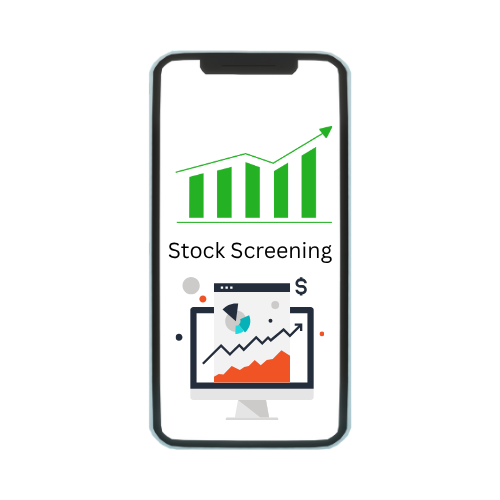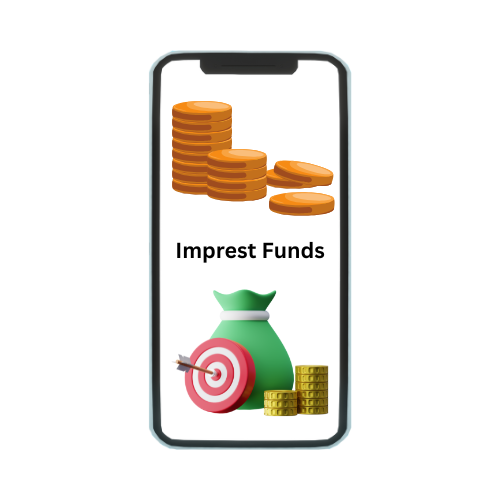Financial independence is the ultimate goal of attaining a state where an individual no longer relies on employment or external financial support to sustain their lifestyle. Financial independence grants individuals the freedom to choose how they spend their time, pursue passions without monetary constraints, and retire early if they so desire. It’s not just about having money; it’s about cultivating a mindset that empowers individuals to make informed financial decisions, ensuring a stable and secure future. This pursuit can lead to a more fulfilling life, marked by financial security, personal growth, and the ability to contribute positively to society.
Financial independence is the ultimate goal of attaining a state where an individual no longer relies on employment or external financial support to sustain their lifestyle. Financial independence grants individuals the freedom to choose how they spend their time, pursue passions without monetary constraints, and retire early if they so desire. It’s not just about having money; it’s about cultivating a mindset that empowers individuals to make informed financial decisions, ensuring a stable and secure future. This pursuit can lead to a more fulfilling life, marked by financial security, personal growth, and the ability to contribute positively to society. Financial independence is about more than just having money. It’s about achieving a state where your investments and savings generate enough income to support your lifestyle, giving you the liberty to live life on your own terms. It’s the ultimate goal that allows you to break free from the constraints of a traditional paycheck and embrace a life full of opportunities and possibilities. In this blog, we’ll delve into the strategies, habits, and mindset shifts necessary to embark on the journey toward financial independence. Whether you’re just starting out or looking to refine your financial plan, we’re here to guide you every step of the way
What is Financial Independence?
Financial Independence is the ability to sustain your lifestyle without relying on active work for income. It’s achieved through strategic saving, investing, and creating passive income streams that cover living expenses. This goal empowers individuals to reduce financial stress, gain control over their time, and focus on personal passions or early retirement. Popularized by movements like FIRE (Financial Independence, Retire Early), achieving financial independence involves disciplined budgeting, debt elimination, and building wealth through diversified investments. It offers freedom, security, and the opportunity to design a life aligned with your priorities, making it a desirable milestone for many on their financial journey.
Benefits of Being Financially Independent
- Freedom of Choice : Financial independence gives you the ability to make decisions based on your desires and values, rather than financial constraints.
- Stress Reduction : Having a financial independence allows you to handle unexpected expenses or emergencies without panic.
- Improved Health and Well-being : Financial independence can afford you access to better healthcare, nutrition, and living conditions, leading to improved physical and mental health.
- Retirement Flexibility : Financial independence provides the option to retire early and enjoy more free time during your healthiest years.
- Opportunities for Growth : Financial independence allows you to explore the world, try new experiences, and broaden your horizons.
- Legacy Building : The freedom to donate to causes you care about and make a positive impact on society. You can build and pass on wealth to future generations, ensuring their financial security.
- Peace of Mind : Financial independence often involves being free from debt, which can bring a great sense of relief and peace of mind.
Steps to Achieve Financial Independence in Life
Step 1: Define Your Financial Goals
The first step toward achieving financial independence is to define your financial goals. Having clear, specific, and measurable goals gives you a sense of direction and motivation. Start by asking yourself the following questions:
- What does financial independence mean to you?
- What are your short-term and long-term financial goals?
- How much money do you need to achieve financial independence?
- By what age do you want to achieve financial independence?
Write down your goals and break them into smaller, actionable steps. For example, if your goal is to retire early, determine the age you want to retire and calculate the amount of money you’ll need to sustain your lifestyle.
Step 2: Create a Detailed Financial Plan
A financial plan is your roadmap to achieving financial independence. It outlines your income, expenses, savings, investments, and debt repayment strategies. Here’s how to create a detailed financial plan:
- Assess Your Current Financial Situation: Calculate your net worth by listing all your assets (savings, investments, property, etc.) and liabilities (loans, credit card debt, mortgages, etc.).
- Set a Budget: Create a budget that allocates your income toward essential expenses, savings, investments, and debt repayment. Use the 50/30/20 rule as a guideline: allocate 50% of your income to needs (housing, utilities, groceries), 30% to wants (dining out, entertainment), and 20% to savings and investments.
- Build an Emergency Fund: Save at least 3-6 months’ worth of living expenses in an easily accessible account. An emergency fund provides a financial cushion in case of unexpected events like job loss or medical emergencies.
- Pay Off High-Interest Debt: Prioritize paying off high-interest debt, such as credit card balances and personal loans. High-interest debt can hinder your progress toward financial independence by accumulating interest over time.
- Save and Invest Regularly: Automate your savings and investments to ensure consistency. Set up automatic transfers to your savings and investment accounts to build your wealth over time.
Step 3: Increase Your Income
Increasing your income can accelerate your journey to financial independence. Here are some strategies to boost your earnings:
- Advance Your Career: Invest in your education and skills to enhance your career prospects. Pursue certifications, attend workshops, and seek opportunities for professional growth. Network with industry professionals and seek mentorship to gain insights and career advancement opportunities.
- Start a Side Hustle: Explore side hustles that align with your skills and interests. Freelancing, consulting, online tutoring, or starting an e-commerce business can provide additional income streams. Allocate the extra income from your side hustle toward savings and investments.
- Invest in Real Estate: Real estate can provide a steady stream of passive income through rental properties. Research the real estate market, identify potential investment properties, and consider long-term appreciation and rental income. Consider real estate investment trusts (REITs) if direct property investment is not feasible.
- Dividend-Paying Stocks: Invest in dividend-paying stocks to receive regular income. Dividends can be reinvested to compound your returns or used to cover living expenses.
Step 4: Invest Wisely
Investing is a crucial component of achieving financial independence. It allows your money to grow over time and generate passive income. Here are some key investment strategies:
- Diversify Your Portfolio:
- Diversification spreads your investments across different asset classes (stocks, bonds, real estate, etc.) to reduce risk and maximize returns. Consider a mix of domestic and international investments to take advantage of global growth opportunities.
- Invest for the Long Term:
- Focus on long-term investments rather than short-term gains. The stock market can be volatile in the short term, but it has historically provided solid returns over the long term. Avoid trying to time the market and instead stay invested through market fluctuations.
- Take Advantage of Tax-Advantaged Accounts:
- Maximize contributions to tax-advantaged accounts such as the Public Provident Fund (PPF), National Pension System (NPS), and Equity-Linked Savings Schemes (ELSS) in India. These accounts offer tax benefits and help you build a retirement corpus.
- Invest in Low-Cost Index Funds:
- Index funds track the performance of a specific market index (e.g., Nifty 50, Sensex) and offer diversification at a low cost. They are a suitable option for passive investors looking for steady returns over time.
Step 5: Manage Your Expenses
Controlling your expenses is essential for achieving financial independence. Here are some strategies to manage your spending effectively:
- Live Below Your Means: Adopt a frugal lifestyle and avoid lifestyle inflation. Focus on spending money on essentials and value-based experiences. Differentiate between needs and wants to make informed spending decisions.
- Cut Unnecessary Expenses: Review your monthly expenses and identify areas where you can cut costs. Cancel unused subscriptions, negotiate better deals on utilities, and reduce discretionary spending.
- Practice Mindful Spending: Be mindful of your spending habits and avoid impulsive purchases. Take time to evaluate whether a purchase aligns with your financial goals. Implement the 30-day rule: wait 30 days before making a significant purchase to determine if it’s necessary.
- Embrace Minimalism: Embrace a minimalist lifestyle by decluttering your home and focusing on experiences rather than material possessions. Selling unused items can also generate extra income that can be invested or saved.
Step 6: Monitor and Adjust Your Financial Plan
Achieving financial independence is an ongoing process that requires regular monitoring and adjustments. Here’s how to stay on track:
- Review Your Financial Plan: Conduct regular reviews of your financial plan to assess your progress and make necessary adjustments. Track your net worth, savings, and investment performance to ensure you are on target to achieve your goals.
- Adjust for Life Changes: Life events such as marriage, having children, career changes, or relocating can impact your financial plan. Adjust your goals and strategies accordingly. Update your financial plan to reflect changes in income, expenses, and financial priorities.
- Stay Informed: Stay informed about economic trends, market conditions, and financial news. This knowledge can help you make informed investment decisions. Subscribe to financial newsletters, read books, and follow reputable financial blogs and podcasts.
- Seek Professional Advice: Consider working with a financial advisor or planner to receive personalized guidance and support. A professional can help you navigate complex financial decisions, optimize your investment strategy, and stay disciplined.
Step 7: Plan for Retirement
Retirement planning is a critical component of achieving financial independence. Here’s how to plan for a comfortable retirement:
- Estimate Retirement Needs: Calculate the amount of money you’ll need to maintain your desired lifestyle in retirement. Consider factors such as living expenses, healthcare costs, inflation, and life expectancy. Use retirement calculators to estimate your retirement corpus based on your goals and time horizon.
- Save Consistently: Save consistently for retirement by contributing to retirement accounts such as the Employees’ Provident Fund (EPF), Public Provident Fund (PPF), and National Pension System (NPS). Take advantage of employer-sponsored retirement plans and maximize contributions to receive matching benefits.
- Invest for Growth: Focus on growth-oriented investments to build a substantial retirement corpus. Consider a mix of equity, debt, and alternative investments based on your risk tolerance and time horizon. Regularly review and rebalance your portfolio to align with your retirement goals.
- Plan for Healthcare Costs: Healthcare costs can be a significant expense in retirement. Ensure you have adequate health insurance coverage to protect against medical expenses. Consider long-term care insurance to cover the cost of assisted living or nursing home care if needed.
Step 8: Build Multiple Streams of Income
Having multiple streams of income can enhance financial security and accelerate your journey to financial independence. Here are some ways to build additional income streams:
- Real Estate Investment: Invest in rental properties to generate passive rental income. Research the real estate market and identify properties with high rental yield potential. Consider real estate investment trusts (REITs) for a more hands-off approach to real estate investing.
- Dividend-Paying Stocks: Invest in dividend-paying stocks to receive regular income. Dividends can be reinvested to compound returns or used to cover living expenses. Choose companies with a strong history of paying and increasing dividends.
- Interest Income: Invest in fixed deposits, bonds, or high-yield savings accounts to earn interest income. Consider tax-free bonds for a steady income stream without the tax burden.
- Freelancing and Consulting: Leverage your skills and expertise to offer freelancing or consulting services. This can provide a flexible source of income while allowing you to work on your own terms.
- Passive Income Sources: Explore other passive income sources such as blogging, affiliate marketing, creating online courses, or publishing e-books. These ventures may require initial effort but can generate ongoing income with minimal maintenance.
Step 9: Protect Your Wealth
Safeguarding your wealth is as important as building it. Here are some steps to protect your financial assets:
- Insurance: Ensure you have adequate health, life, and property insurance. This coverage protects you and your family from financial losses due to unforeseen events.
- Estate Planning: Create a comprehensive estate plan that includes a will, trusts, and powers of attorney. This ensures your assets are distributed according to your wishes and protects your family’s financial future.
- Legal Protections: Consider legal protections such as liability insurance or asset protection strategies to shield your wealth from potential lawsuits or claims.
- Emergency Fund: Maintain an emergency fund to cover unexpected expenses and provide a financial buffer during tough times.
Step 10: Mindset and Discipline
Achieving financial independence requires a strong mindset and discipline. Here are some tips to stay motivated and focused:
- Stay Committed: Stay committed to your financial goals and maintain discipline in your saving and investing habits.
- Avoid Lifestyle Inflation: Resist the temptation to increase your spending as your income grows. Focus on living below your means and investing the extra income.
- Continuous Learning: Continuously educate yourself about personal finance, investing, and financial planning. Stay informed about new strategies and opportunities.
- Celebrate Milestones: Celebrate your financial milestones and achievements. This keeps you motivated and reinforces positive financial behaviour.
Why Financial Independence Matters??
Financial independence matters because it provides individuals with the freedom to live life on their own terms, without the constant stress of financial insecurity. It enables people to make choices based on their passions and values rather than financial necessity. Achieving financial independence means having the security to handle unexpected expenses, pursue personal growth opportunities, and enjoy a comfortable retirement. It reduces stress, enhances overall well-being, and allows for a better work-life balance. Ultimately, financial independence empowers individuals to focus on what truly matters in life, leading to greater fulfilment and peace of mind.
How long does it take to achieve financial independence?
The time it takes to achieve financial independence varies widely depending on individual circumstances, including income, expenses, savings rate, and investment returns. For some, it might take decades, while others might reach it in 10-15 years with aggressive saving and investing strategies. Key factors include starting early, maintaining a high savings rate, investing wisely, and avoiding debt. Consistency and discipline are crucial. Regularly reviewing and adjusting your financial plan can also speed up the journey. Ultimately, achieving financial independence is a marathon, not a sprint, and requires a long-term commitment to financial goals and smart money management
Investing for Financial Independence
Importance of Investments
Investments are crucial because they enable wealth accumulation and financial growth over time. By investing wisely, individuals can outpace inflation, ensuring their money retains and increases its value. Investments provide an opportunity to generate passive income, which can contribute significantly to financial independence and retirement planning. They also allow for diversification, reducing the risk of financial loss by spreading money across various assets. Furthermore, investments support economic growth, as funds are directed towards businesses and projects that drive innovation and development. Ultimately, smart investing helps secure a stable and prosperous financial future, providing peace of mind and financial security
Types of Investment Options
Investment options include stocks, bonds, mutual funds, real estate, and exchange-traded funds (ETFs). Each option offers varying levels of risk and return. Stocks provide ownership in companies, bonds are loans to entities, mutual funds pool investor money, real estate involves property, and ETFs combine diverse assets for flexibility.
- Stock Market Investments
Stock market investments involve buying shares of publicly traded companies, giving you partial ownership. This can lead to potential growth as the company’s value increases. Stocks are known for their high return potential, but also come with higher risks compared to other investment types. Diversification can help manage these risks.
- Real Estate Investments
Real estate investments involve purchasing property, such as residential, commercial, or rental properties, to generate income or appreciate in value over time. This type of investment can provide steady cash flow through rental income and potential capital gains. It’s often considered a stable and tangible asset with less volatility
Managing Debt
Strategies for Debt Reduction
Reducing debt can significantly improve your financial health and provide peace of mind. Here are comprehensive strategies to help you effectively reduce and eliminate debt:
- Create a Detailed Budget : The first step towards reducing debt is understanding where your money goes. Create a detailed budget that tracks your income and expenses. This helps identify areas where you can cut costs and allocate more money towards debt repayment
- Prioritize Debts : Focus on paying off debts with the highest interest rates first. This approach minimizes the amount of interest you pay over time, helping you save money. Start by paying off the smallest debts first. This method provides quick wins and builds momentum, encouraging you to stay committed to your debt reduction plan.
- Consolidate Debts : If you have multiple debts with high-interest rates, consider consolidating them into a single loan with a lower interest rate. Debt consolidation can simplify your repayment process and reduce the overall amount of interest you pay.
- Negotiate with Creditors : Reach out to your creditors to negotiate lower interest rates or more favorable repayment terms. Some creditors may be willing to reduce your interest rates or waive fees if you demonstrate a commitment to repaying your debt.
- Increase Your Income : Find ways to increase your income to allocate more money towards debt repayment. This could include taking on a part-time job, freelancing, or selling unused items. Even small additional amounts can make a significant difference over time.
Avoiding Common Debt Traps
Avoiding common debt traps requires careful financial planning and discipline. First, steer clear of high-interest loans and credit card debt by paying off balances in full each month. Second, avoid impulse purchases and create a budget to manage your spending. Third, be cautious with “buy now, pay later” schemes that can lead to overspending. Fourth, build an emergency fund to cover unexpected expenses, preventing the need for loans. Finally, educate yourself on financial literacy to make informed decisions. By practicing these strategies, you can maintain financial stability and avoid falling into debt traps.
Conclusion
Achieving financial independence is a journey that requires careful planning, disciplined execution, and continuous learning. By defining your financial goals, creating a detailed financial plan, increasing your income, investing wisely, managing expenses, and building multiple streams of income, you can work towards financial freedom. Additionally, protecting your wealth and maintaining the right mindset and discipline are crucial for long-term success.
Frequently Asked Questions
Financial independence is the state of having enough personal wealth to cover all your living expenses without needing to work for a paycheck.
The time it takes to achieve financial independence varies widely depending on factors such as income, expenses, savings rate, and investment returns. For some, it might take several decades, while others might reach it in 10-15 years with aggressive saving and investing strategies. Starting early, maintaining a high savings rate, and making wise investment choices can significantly shorten the journey. It requires consistency, discipline, and regular review of your financial plan.
While the terms are often used interchangeably, financial independence typically refers to the ability to live off your investments and passive income without needing to work actively. Financial freedom, on the other hand, is a broader concept that encompasses having control over your finances, being debt-free, and having the freedom to make choices that align with your values and desires







